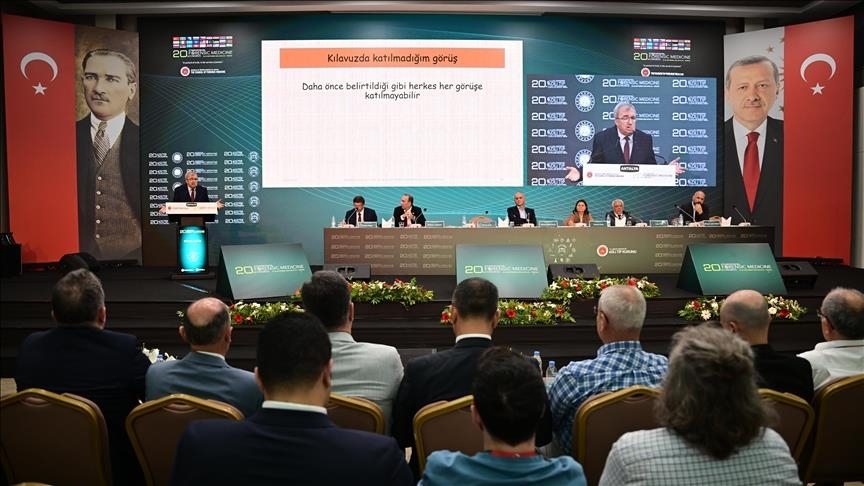International 20th Forensic Medicine Days: AI no longer futuristic tool but reality that enables faster decision-making
Experts from 27 countries highlight how artificial intelligence reshapes forensic analyses, as discussions also focus on global human rights issues in Gaza and Balkans

- 'We have already started to use AI more effectively as it is becoming a key tool, and we believe it will be beneficial in making faster decisions': President of Turkish Council of Forensic Medicine Asliyuksek
ANTALYA, Türkiye
Artificial intelligence (AI) is no longer a futuristic tool but rather a reality that enables faster decision-making, more precise analysis, and the discovery of hidden truths in crime scenes and conflict zones.
These were the cruxes of experts from 27 countries, who emphasized on the third day of the "International 20th Forensic Medicine Days" on Wednesday in Antalya, a city in the southern Mediterranean region of Türkiye.
“Our experts have begun to use artificial intelligence more effectively in forensic sciences and forensic medicine… We have already started to use AI more effectively as it is becoming a key tool, and we believe it will be beneficial in making faster decisions,” President of the Turkish Forensic Medicine Institution Hizir Asliyuksek told Anadolu during the congress held by the Justice Foundation for Strengthening the Judiciary (ATGV) in Antalya.
He added that their experts have begun using artificial intelligence more effectively in forensic sciences and forensic medicine.
Regarding new research, he said: “We have granted permissions from the ‘Education and Scientific Research Commission’ for new publication projects. Next year, we will make artificial intelligence the main agenda item and share the latest developments in forensic medicine and forensic sciences.”
He emphasized that the session on "Human Rights and Expert Witnessing in the World," chaired by Fahrettin Altun, president of the Turkish Human Rights and Equality Institution, drew particular attention.
"Both the recent developments in Palestine and past human rights violations in Karabakh, Bosnia and Herzegovina, and Kosovo were discussed," he added.
He also pointed out that debates over the genocide in Gaza "captured intense interest from participants" and noted that "the congress once again brought human rights violations occurring around the world, especially in Gaza, to the forefront."
In addition to the panels, oral presentations are held in the evenings, with poster sessions taking place between them.
Last year, around 600 participants from Türkiye and 18 other countries attended the congress; this year, the number increased to 780 attendees from 27 countries.
Asliyuksek emphasized that participation from countries, including the UK, Russia, Palestine, Egypt, Italy, Bulgaria, Poland, Ukraine, Somalia, Uzbekistan, Portugal, Serbia, Czechia, Kosovo, Bosnia and Herzegovina, the Turkish Republic of Northern Cyprus, and Azerbaijan, was particularly significant.
He also highlighted that some of the world’s leading forensic medicine and science experts from four continents -- including AAFS President James Louis Caruso, Marshall University’s Professor Mohammed Ranavaya, Zurich University’s Prof. Michael Thali, IAFS President Yanko Kolev, and leaders of the European and Asian forensic networks -- attended the congress.
The 20th International Forensic Medicine Days are scheduled to conclude on Sept. 28.
Anadolu Agency website contains only a portion of the news stories offered to subscribers in the AA News Broadcasting System (HAS), and in summarized form. Please contact us for subscription options.







